Oklahoma Supreme Court finds 'limited right' to abortion in state constitution
The Oklahoma Supreme Court on Tuesday ruled that the state constitution includes "an inherent right of a pregnant woman to terminate a pregnancy when necessary to save her life."
The court struck down one law passed by the Legislature to criminalize abortions but left another in place and took no position on the broader question of whether there is a right to elective abortions, effectively upholding strict antiabortion measures in place since last year.
"We make no ruling on whether the Oklahoma Constitution provides a right to an elective termination of a pregnancy, i.e. one made outside of preserving the life of the pregnant woman as we have defined herein," the court's majority opinion stated.
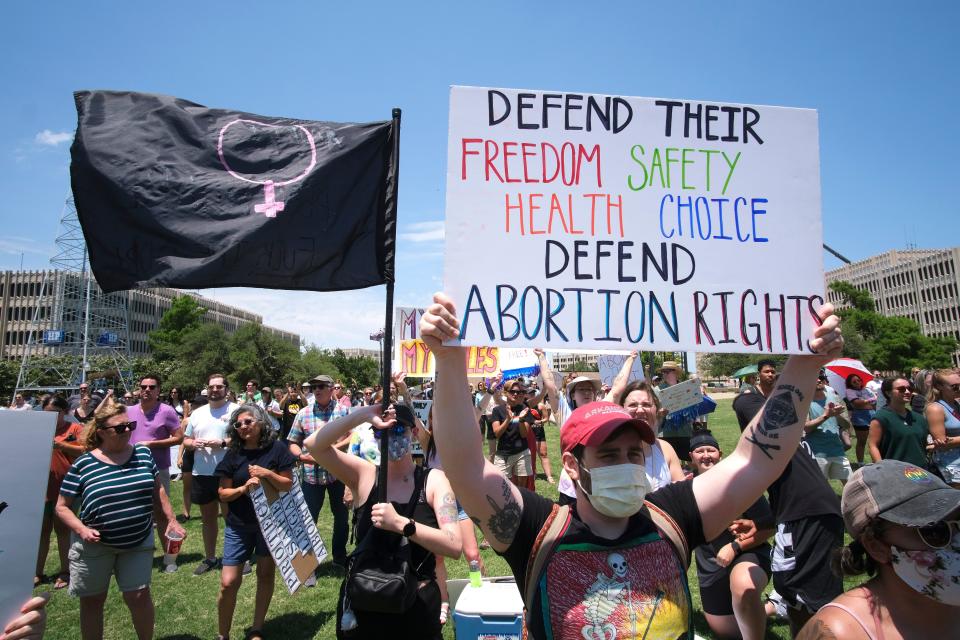
Five justices formed the majority: Yvonne Kauger; James R. Winchester; James E. Edmondson; Douglas L. Combs; and Noma Gurich. Dissenting were Chief Justice M. John Kane IV and Vice Chief Justice Dustin P. Rowe, along with Justices Richard Darby and Dana Kuehn.
The case was brought by abortion providers and reproductive rights groups, led by Oklahoma Call for Reproductive Justice.
It challenged laws approved by the Oklahoma Legislature to ban most abortions in the wake of last year’s U.S. Supreme Court decision in Dobbs v. Jackson Women's Health Organization striking down its precedents that legalized most abortions.
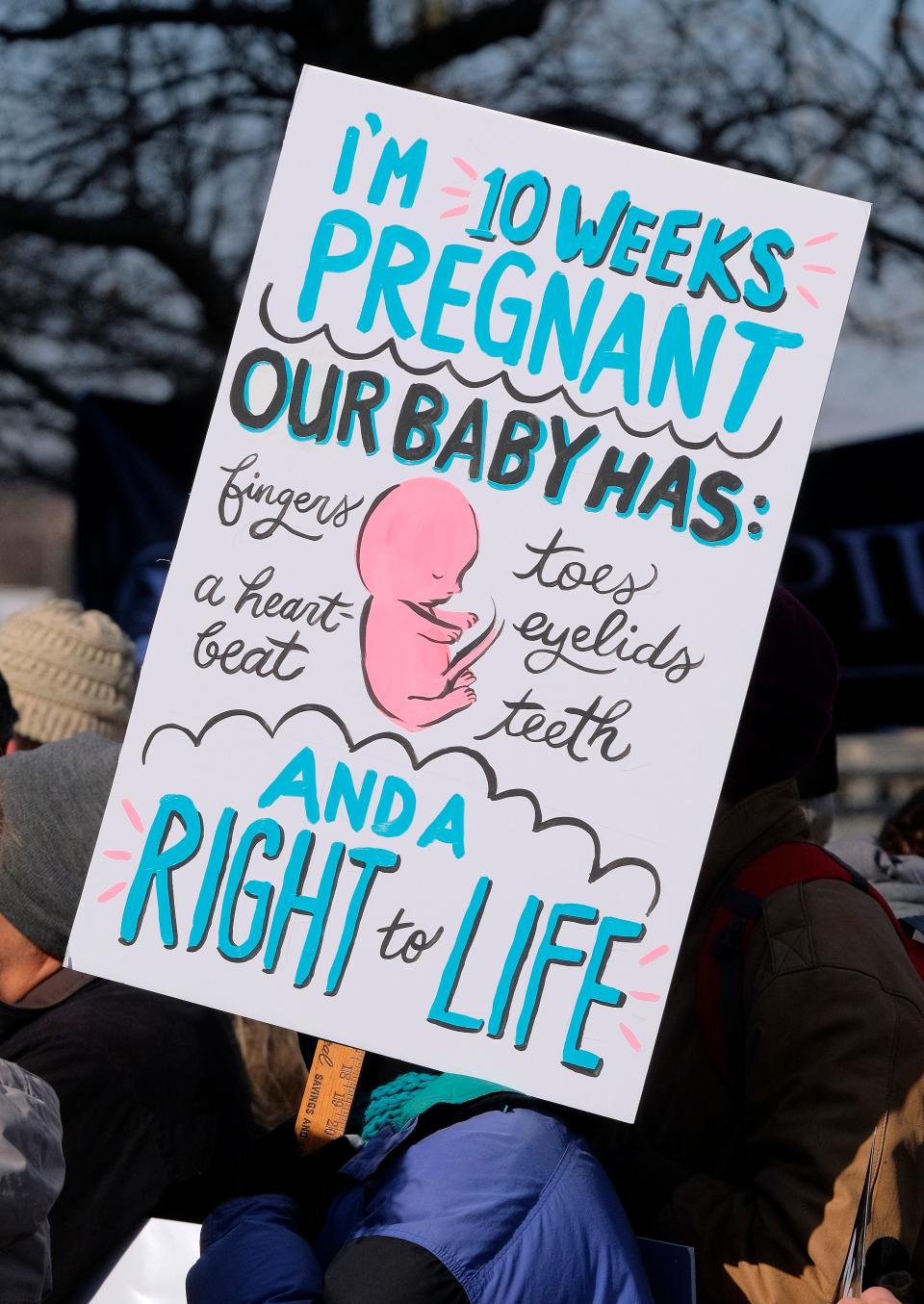
The state Supreme Court was asked by the reproductive rights groups to find that the Oklahoma Constitution protected a woman’s right to terminate her pregnancy. The court stopped well short of that, ruling only on the narrow question of whether abortion was protected to save a woman's life.
The majority opinion pointed to the constitutional provision that states: “All persons have the inherent right to life, liberty, the pursuit of happiness, and the enjoyment of the gains of their own industry.”
That section, the court said, “stands as the basis for protecting a woman’s right to terminate a pregnancy in order to save her life.”
The court said it would definite the inherent right to mean: “a woman has an inherent right to choose to terminate her pregnancy if at any point in the pregnancy, the woman’s physician has determined to a reasonable degree of medical certainty or probability that the continuation of the pregnancy will endanger the woman’s life due to the pregnancy itself or due to a medical condition that the woman is either currently suffering from or likely to suffer from during the pregnancy.
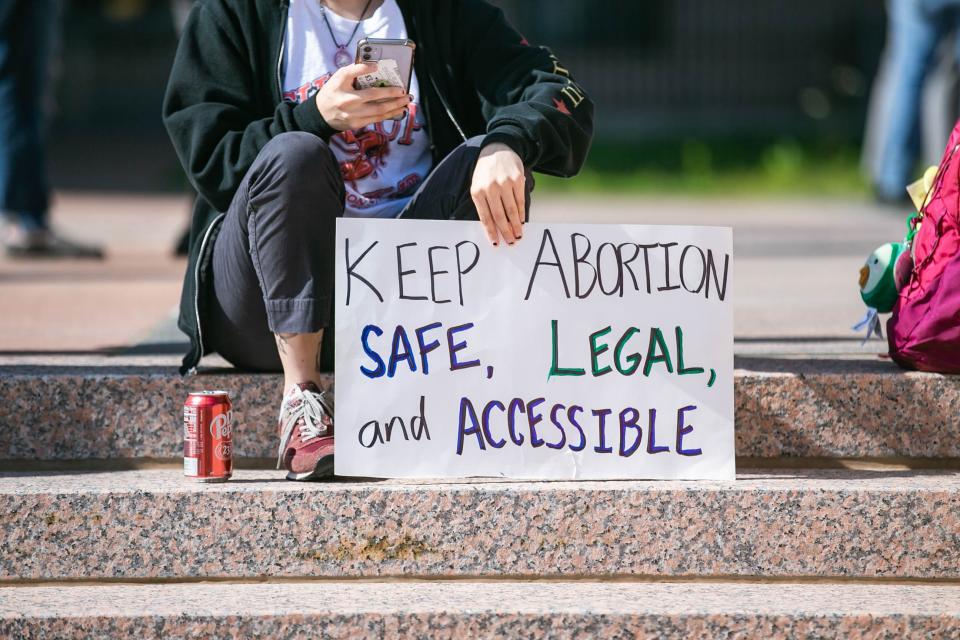
“Absolute certainty is not required, however, mere possibility or speculation is insufficient.”
The court struck down a law that prevented an abortion to save a woman's life unless she was in a "medical emergency."
The court stated, "We read this section of law to require a woman to be in actual and present danger in order for her to obtain a medically necessary abortion. We know of no other law that requires one to wait until there is an actual medical emergency in order to receive treatment when the harmful condition is known or probable to occur in the future."
A concurring opinion written by Kauger and joined by Combs and Edmondson sketches the history of discrimination against women and says women had the right throughout that discrimination to terminate a pregnancy to save their own lives.
“Although the Oklahoma Legislature is considering several bills which address termination, and there may be an initiative petition or referendum, this is the cause before us. We need to do our jobs, uphold our oaths of office, and address the issues without delay rather than speculate about what might be.
“For some women, the draconian law which allows no exception, in the absence of a medical emergency, to preserve the life of the mother, may be a death sentence. In some instances, women may have fewer rights than a convicted murderer on death row. These women may be subject to a death sentence without being afforded due process or any provision for clemency or pardon. Imagine that.”
"Imagine that" is an apparent reference to the state's branding motto at the state Tourism and Recreation Department.
Kane wrote a dissenting opinion saying the majority of justices had engaged in “legal contortions to protect pregnant women who are in medical peril by fashioning Oklahoma Constitution precepts of abortion law that simply do not exist.
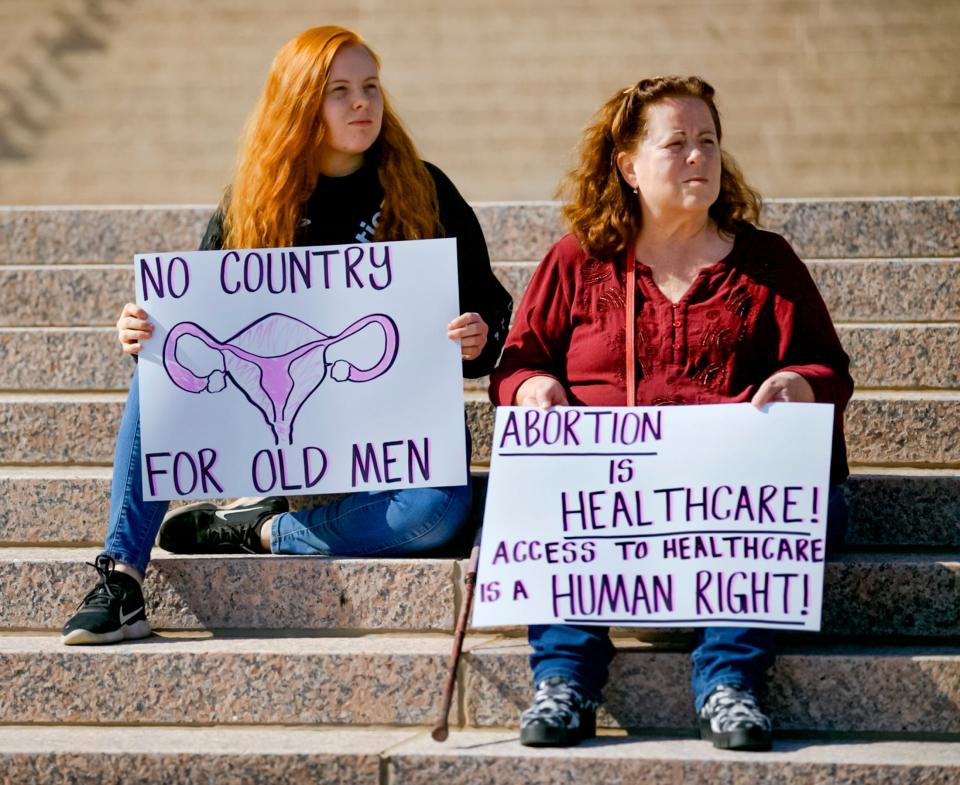
“There is no expressed or implied right to abortion enshrined in the Oklahoma Constitution. In interpreting our Constitution, this court must guard against the innate human temptation to confuse what is provided in the Oklahoma Constitution with what one wishes were provided.”
Winchester was the only justice appointed by a Republican governor to join the majority.
More:Why programs like paid family leave might be getting more Oklahoma Republican support
All four justices dissenting were appointed by Republicans. Three, including Kane, were appointed by Gov. Kevin Stitt, who vowed to appoint only anti-abortion justices to the court.
Oklahoma Attorney General Gentner Drummond, whose office defended the strict abortion prohibitions that were challenged by the reproductive rights groups, said Tuesday, “We respect the Court’s ruling and are pleased the justices acknowledged the exception for cases in which the life of the mother is at risk.”
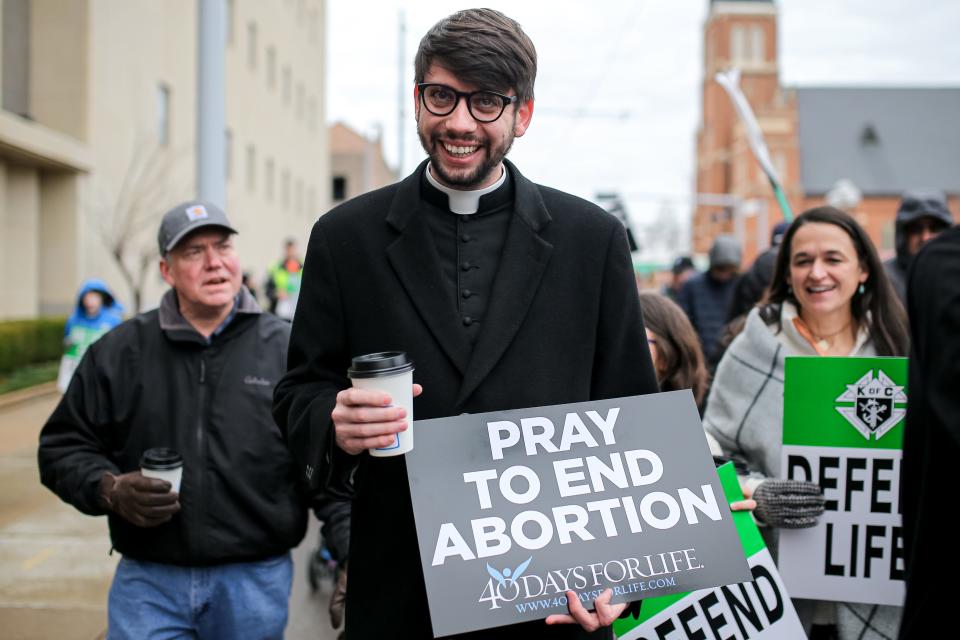
Emily Wales, president and CEO of Planned Parenthood Great Plains, said, "Today’s decision is the first step in what will be a long journey to restore real, meaningful rights of Oklahomans over their own bodies. But make no mistake: This is a small step. The Oklahoma Supreme Court recognized one fundamental truth: Patients must be permitted to access critical care to save their lives. But the right recognized today is so limited that most people who need abortion will not be able to access it."
“This ruling will have severe repercussions for the health and well-being of Oklahomans. So many people who need care have been left behind by this court. Health care providers’ hands are still tied by an abortion ban that would make them criminals for providing essential care. With abortion access functionally eliminated in the state, Planned Parenthood Great Plains will continue doing everything we can to be here for people who need us, just as we have been for decades.”
Stitt criticized the majority decision, saying "an activist majority" had made a policy decision that belongs to the people.
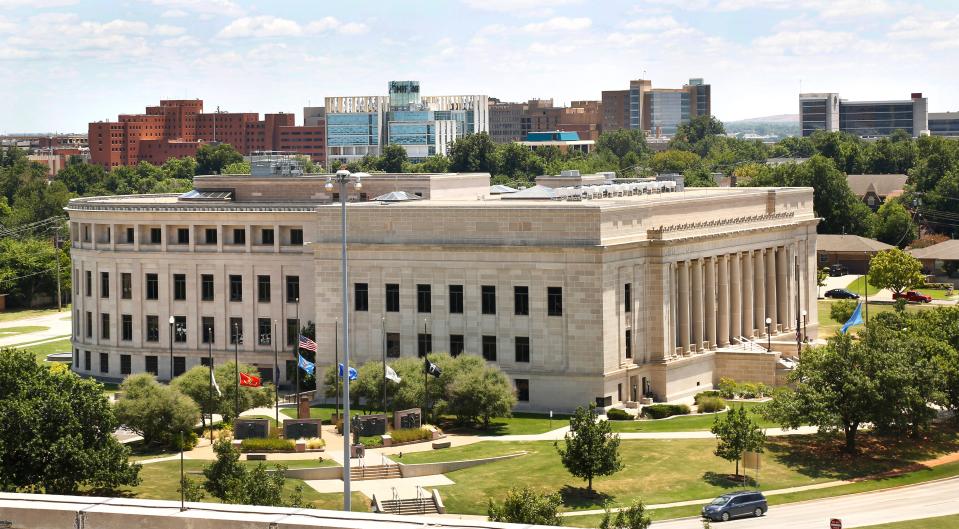
"Furthermore, in their 20 page opinion, not once was there any mention of the unborn," Stitt said. "From the moment life begins at conception, we have a responsibility to do everything we can to protect that baby's life and the life of the mother. That is what I believe and that is what the majority of Oklahomans believe which is why the Legislature has passed, and I have signed, numerous laws banning abortion in Oklahoma."
This article originally appeared on Oklahoman: Oklahoma Supreme Court finds 'limited right' to abortion

